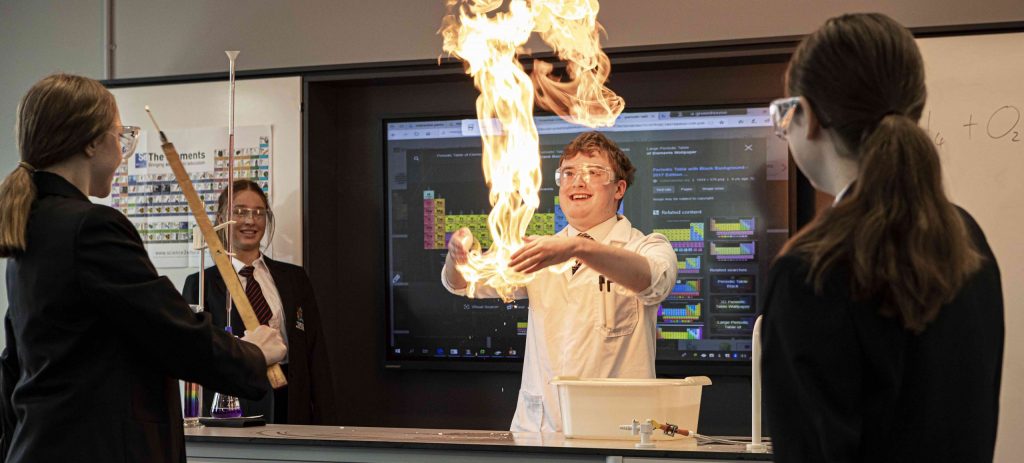The English Faculty at King Edward VI Northfield School for Girls is an ambitious, forward-thinking department which is building on a history of success. English is central to the school: reading, writing and oracy underpins all areas of the curriculum, and the fully equipped library is literally at the heart of the school. The department is characterised by the staff’s enthusiasm for our subject and our belief in our students; we take great pride in the progress our students, regardless of their starting points and backgrounds, make in the subject of English.
The KEVI NSG English curriculum has been designed to be broad and balanced at both key stages, building towards an exam-centred Key Stage Four in order to ensure the strongest possible outcomes for all of our students. The English curriculum encourages students to communicate effectively, engage in debate, think critically, develop enriched cultural capital, and to foster an appreciation for the craft of writers, through analysis of texts and through producing and showcasing creative work of their own. The curriculum is ambitious and appropriately challenging for all pupils of all abilities.
Our curriculum aims are:
- To offer students at KEVI NSG an enriching, coherent and well-planned English curriculum at Key Stages Three and Four which allows them to explore the richness and diversity of the English language and the wealth of our English literary heritage.
- To effectively teach the knowledge-rich content of the GCSE specifications, as well as maximising opportunities to ‘go beyond’ the specifications by making links to the wider world and culture, developing students’ cultural capital.
- To promote high standards of reading skill and a foster a love of reading, through library lessons and the Accelerated Reader programme.
- To develop students’ skills in both written and spoken communication, supporting their ability to use the highest standards of literacy and oracy as transferable skills across the KEVI NSG curriculum and to prepare them for further education, life and work.
- To support students constructively to overcome barriers to learning in English to ensure that they all achieve their potential, regardless of factors which may affect their progress.
- To encourage and foster students’ ambition within the subject of English, ensuring they are ambitious for their examination success and to support them to pursue study of English, or related study, beyond KEVI NSG.
- To develop students’ creativity within the subject of English, through both their creative and critical enquiry into the study of language and literature, and their creative expression of ideas in their writing.

English at KS3
English at Key Stage 3 (Years 7-9) – Overview
In English, we aim to address all areas of the national curriculum expectation that at Key Stage Three our students should receive an enriching and challenging program of study. We ensure that girls have opportunities to read a wide variety of texts, from across a range of time periods and cultures.
They have opportunities in year 7 and 8 to read short stories, novels, poems, plays, journalistic writing and critical essays. We explore different forms of writing and ensure pupils have opportunities to produce high quality writing in a range of forms and styles. We ensure they write with accuracy and are able to create engaging pieces of writing. Students are also supported in developing skills in speaking and listening. They have opportunities to discuss subjects and texts both formally and informally, to take part in drama activities and to prepare speeches.
Throughout Key Stage Three, students’ reading skills and their enjoyment of reading is developed through timetabled library lessons, where they receive bespoke guidance on their reading and text choices, as well as progressing in their reading via the Accelerated Reader programme. For some students at Key Stage Three, focused support to ensure weaker readers make accelerated progress to access the full curriculum is provided through the ‘Jump Start’ reading programme.
Pupils’ progress at Key Stage Three is assessed regularly by teachers through in-class assessment, as well as three termly ‘Knowledge and Skills’ assessments which gauge pupils’ retention of key knowledge from their studies, as well as reading and writing assessment tasks. This progress is tracked and monitored by teachers and the Head of English Faculty. All pupils are ‘set’ throughout Key Stage 3, initially via reading comprehension and word-recognition tests (NGRT), as well as increasingly by their ongoing assessment. This ensures pupils will be appropriately challenged to achieve their full academic potential from the start of their year 7 journey.

English at KS4
English at Key Stage 4 (Years 10-11) – Overview
In English at Key Stage Four, commencing in year 10, it is our aim that all students follow the AQA GCSE specifications for English Language and English Literature. Core knowledge of important literary texts and authorial style, as well as procedural knowledge and skills such as technical accuracy that are introduced at Key Stage Three underpin the main GCSE assessment objectives which guide the Key Stage Four curriculum. By the end of Key Stage Three, we expect the students to be secure in their skills in inference, analysis of language and structure and to be developing skills in comparison and evaluation, preparing them for GCSE English Language. We also ensure they are confident and capable of reading and interpreting a range of literary texts in preparation for GCSE English Literature. Both GCSEs are co-taught by the same class teacher; the exam units are taught distinctly and explicitly, though the broad knowledge and skills required for both overlap. The text choices for English Literature are ambitious, ensuring that students are enriched and challenged in their studies. The opportunity to develop students’ speaking and listening is ensured through the Spoken Language endorsement undertaken in year 10, where students have the opportunity to present a spoken presentation or speech on a topical issue of their choice.
Key Stage 4 English Curriculum – In detail
All pupils in KS4 study towards GCSE English Language and GCSE English Literature over two years, following the AQA specifications for both courses. These are both assessed at the end of Year 11 through external examination. For more information on the courses, please visit the AQA website: www.aqa.org.uk/subjects/english/gcse
In Year 10, pupils spend the first term immersing themselves in two key literary texts for their GCSE in English Literature: the ‘modern drama’, JB Priestley’s political play ‘An Inspector Calls’, and Charles’ Dickens’ ‘A Christmas Carol’, our choice of 19th Century Novel. They turn their focus to learning approaches to the two GCSE English Language examination papers in the Spring term: Paper 1 covers Fiction and creative writing, whilst Paper 2 covers Non-Fiction, real-world texts from both our time and the 19th century and ‘viewpoint’ writing. The summer term is spent studying the AQA Anthology of Poetry, with the ‘Power and Conflict’ poetry cluster currently studied. They will also complete a spoken presentation on a chosen topic for their Spoken Language endorsement (separately accredited to the GCSE).
In year 11, pupils will read and study Shakespeare’s ‘Macbeth’ as their final key set-text for GCSE English Literature. Later, they will explore approaches to ‘unseen’ poetry alongside studying the remaining ‘Power and Conflict’ poems. From the Spring term onwards, their lesson and homework focus turns to revision, recalling essential knowledge, understanding and analysis of the set texts and practising approaches to the examinations. They will sit a number of ‘mock’ examinations throughout year 11, as well as receiving effective feedback from their teachers, in order to secure an understanding of how to succeed and achieve ambitious outcomes in their English GCSEs in the Summer of year 11.
KS4 – GCSE Curriculum
| Term | Year 10 | Year 11 |
| Autumn | Modern Drama text: ‘An Inspector Calls’ 19th Century Novel: ‘A Christmas Carol’ Descriptive / Narrative writing | Shakespeare text: ‘Macbeth’ 19th Century Novel – Revision Language Paper 1 – Revision |
| Spring | English Language Paper 1: Exploring creative fiction (Reading and Writing) English Language Paper 2: Viewpoints and perspectives in non-fiction (Reading and Writing) | Poetry Anthology: ‘Power and Conflict’ cluster Modern Drama text: ‘An Inspector Calls’ – Revision Language Paper 2 – Revision |
| Summer | Poetry Anthology: ‘Power and Conflict’ cluster Spoken Language Endorsement | ‘Unseen’ poetry English Language and English Literature – Revision and examination skills |
Further Education
We encourage many of our pupils to pursue English as a subject beyond their Key Stage Four studies at Northfield School for Girls. Many of our year 11 leavers go on to study A Level English Literature, A Level English Language or other related courses, such as A Level Drama or Media Studies.
For all pupils, it is vital to achieve strong grades in their two English GCSEs in order to effectively undertake all Level 3 courses. GCSE English Language and English Literature are necessary in order to study these subjects at A Level as well as providing a foundation for many other subjects.
Employers say that one of the most valuable things they look for in the people who work for them is excellent communication skills, effective speaking and listening, as well as the fundamental knowledge of text comprehension and technical skill in writing. English provides pupils with this vital knowledge and skills set to ensure they achieve success beyond Northfield School for Girls.



